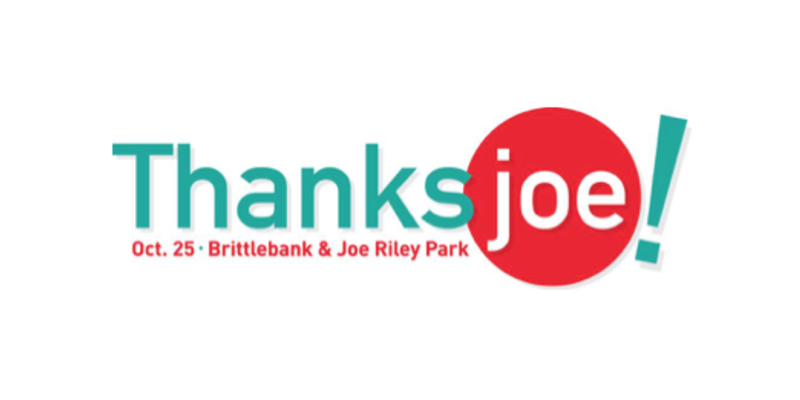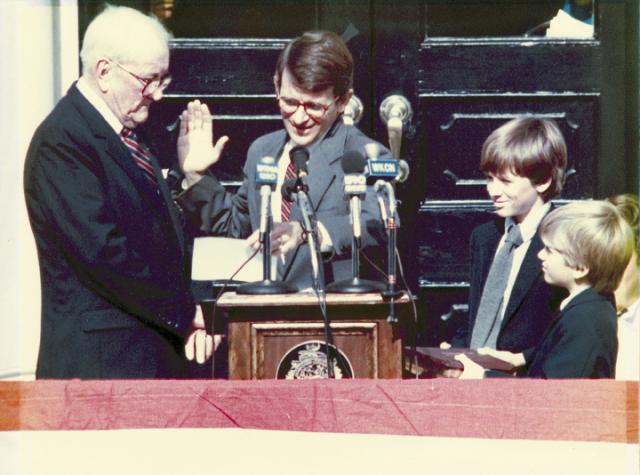
Many Charlestonians and visitors, myself included, enjoyed a full day of events and festivities this past Sunday at Brittlebank Park and Joe Riley Stadium. The event had magnificent performers, enticing food trucks, and best of all, the opportunity to take a “selfie” with Mayor Joe Riley Jr. of Charleston. The event, called Thanks Joe!, was held to celebrate the life and career of the only man most Charlestonians have ever known as Mayor.
Overhearing those in the “selfie” line worry they would miss the opportunity to have a picture with Mayor Riley and seeing a few leave the tent with eyes watering confirmed to me the most obvious understatement of this Mayoral race: no matter who will replace Mayor Riley, Charleston doesn’t want him to go just yet.

Politics gets many ideas ascribed to it. Some within my circles define it as “the art of compromise”, others the “devil’s work”. It can bring out the best in people in times of need, yet also create chances to swiftly end careers while tearing apart lives. Our society has witnessed both the positive and negative aspects of the political arena, but with the negative being so heavily highlighted by the meida, we have come to gravitate towards cynicism and disbelief in regards to those we grant power to.
Yet Joseph P. Riley Jr. can honestly be described as a unique outlier to this formula. Simply put, I have never met someone who doesn’t like him, or at least greatly respect him. Political scientists would agree that this view of him is nothing short of a miracle as the man has been in office for forty years. How, in a city that is heavily stratified by race, income, and history, can one man remain in power so long and remain so beloved?
Even Mayor Riley himself finds it difficult to articulate what exactly has made his political career the immense success it has been. Born in Charleston, and a graduate of the Citadel and the University of South Carolina School of Law, Riley first served in the South Carolina House of Representatives from 1968 until 1974. He was then elected Mayor of Charleston for the first time and assumed office in December of 1975. The few Charlestonians who can remember the city at this time will attest to the fact that Charleston was in dire need of repair on both a physical and a political level.
The incredible transformation of the city remains the major reason why Riley is so beloved today. Back in 1975, an incredible visionary assumed the Mayor’s office, and the city’s growth has yet to slow down. He’s stressed in interviews that what people want isn’t lofty words, but concrete and useful results. As a result, he deliberately concentrated on visible, measurable realities—the safety, beauty, and vibrancy of streets; the placement of parks; the construction of public amusements; and the availability of housing.

Two crucial moments in Riley’s tenure as Mayor are sure to define his legacy. First was the establishment of the prestigious Spoleto Festival, a prominent annual event that brings world-renowned artists and performances to Charleston. Founded in 1977 by Pulitzer Prize-winning composer Gian Carlo Menotti, who sought to establish a counterpart to the Festival dei Due Mondi (The Festival of Two Worlds) in Spoleto, Italy, the Spoleto Festival provided Riley with the crucial opportunity to raise Charleston’s standards and growth. When Italian organizers planned an American festival, they searched for a city that would offer the charm of Spoleto, Italy, and also its wealth of theaters, churches, and other performance spaces. Simply put, the Spoleto Festival not only brought great talent and prospects to Charleston, it also demanded the same from the Holy City. The given success of the festival allowed Riley future opportunities to redevelop the city into the established tourist destination it is today.
The second defining moment of Riley’s administration was a result of the Charleston he experienced growing up. Riley's Charleston was segregated. In a 2014 New York Times interview, Riley explained how his parents admonished him for showing the same manners and courtesy to African American citizens as was afforded to his white counterparts. To him, this system was unacceptable, and his time in office has been highlighted with attempts to improve race relations within Charleston. During the heated debate in 2000 to remove the Confederate flag from the South Carolina State House grounds, Riley thought of a genius way to protest the flag remaining up: he organized a 5 day, 120 mile walk march from Charleston to Columbia, the state capital, to urge the removal of the Confederate flag. Despite death threats resulting in the need to wear a bullet-proof vest, and blisters forming that threatened to prematurely end his march, Riley finished his walk, providing much needed support to the flag removal cause.
These two events showcase the strong, exemplary leadership Riley has given to Charleston, leadership that stems from a deep, personal understanding of Charleston’s history and its need for growth and change on social and economical levels. In addition, there’s also a sensitivity to Riley’s decisions and actions that many current politicians lack. Mayor Riley, unlike many office holders, refuses to do anything less than place the needs of his citizens first, including minority citizens. From hiring Charleston’s first African-American police chief, Reuben Greenberg, in 1982, to overseeing the establishment of an African-American History Museum on Charleston’s harbor, Riley believes in honoring the history of all who have played a role in Charleston’s unique culture while creating a city that represents needs for all who currently reside in it.
Riley’s 40 years as Mayor have not been without issues. His administration received criticism for its initial handling of the Sofa Super Store fire in 2007 that resulted in the deaths of nine Charleston firefighters, and has had rows with environmentalists and preservationists in his quest for business expansion in Charleston. Yet the 40 years that have been defined by Mayor Riley’s vision for Charleston have yielded a city that is vibrant and welcoming to all, winning acclaim on an international level from respected travel magazines. Riley himself has also received numerous personal accolades, most notably South Carolina’s Order of the Palmetto and South Carolinian of the year. Even the new baseball stadium, Joe Riley Park, was named for him.
Perhaps most importantly, we will never forget the man who was Joseph P. Riley, former Mayor of Charleston.
Not a bad legacy at all. So once more, on behalf of us all, Thanks Joe!